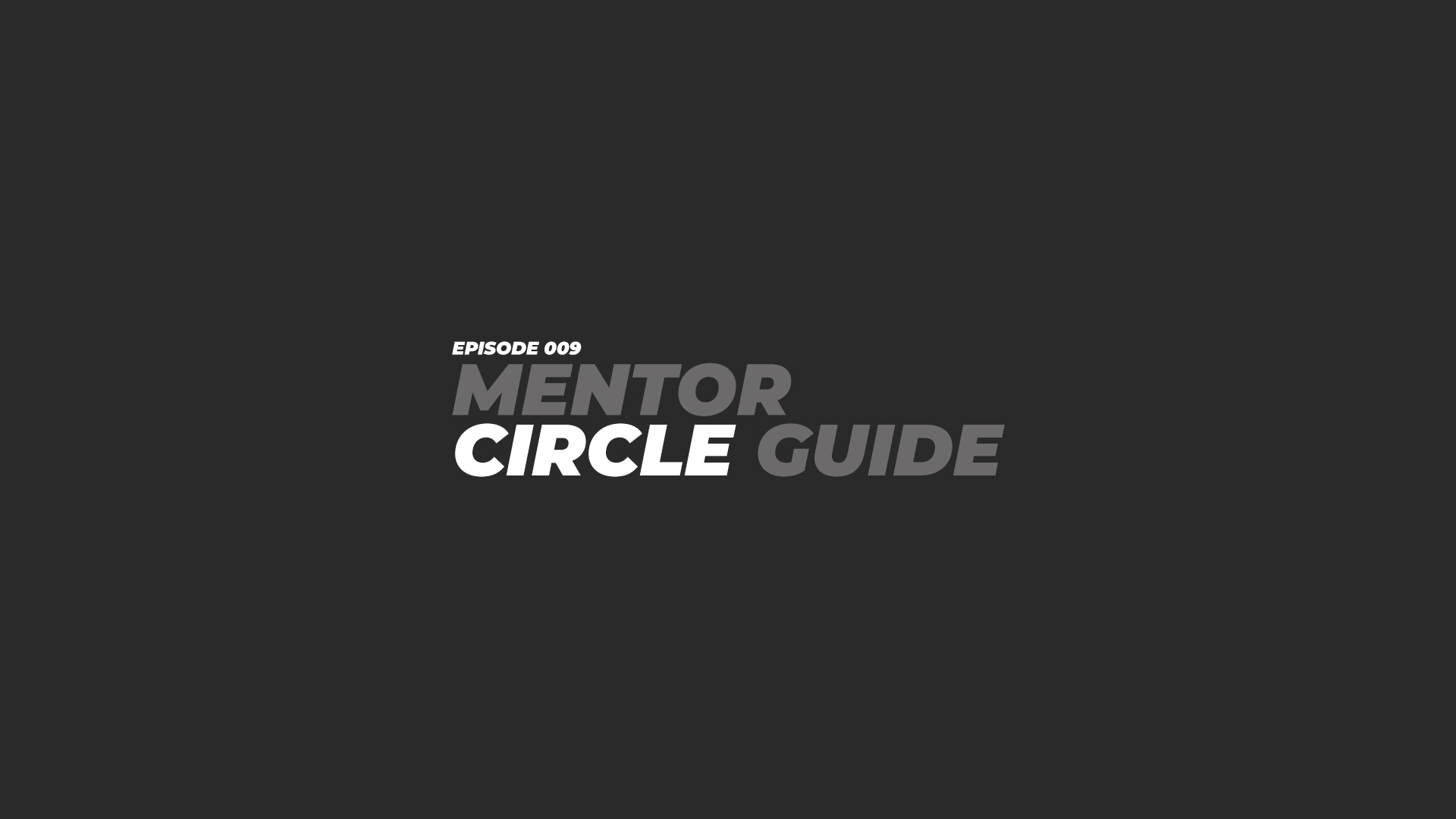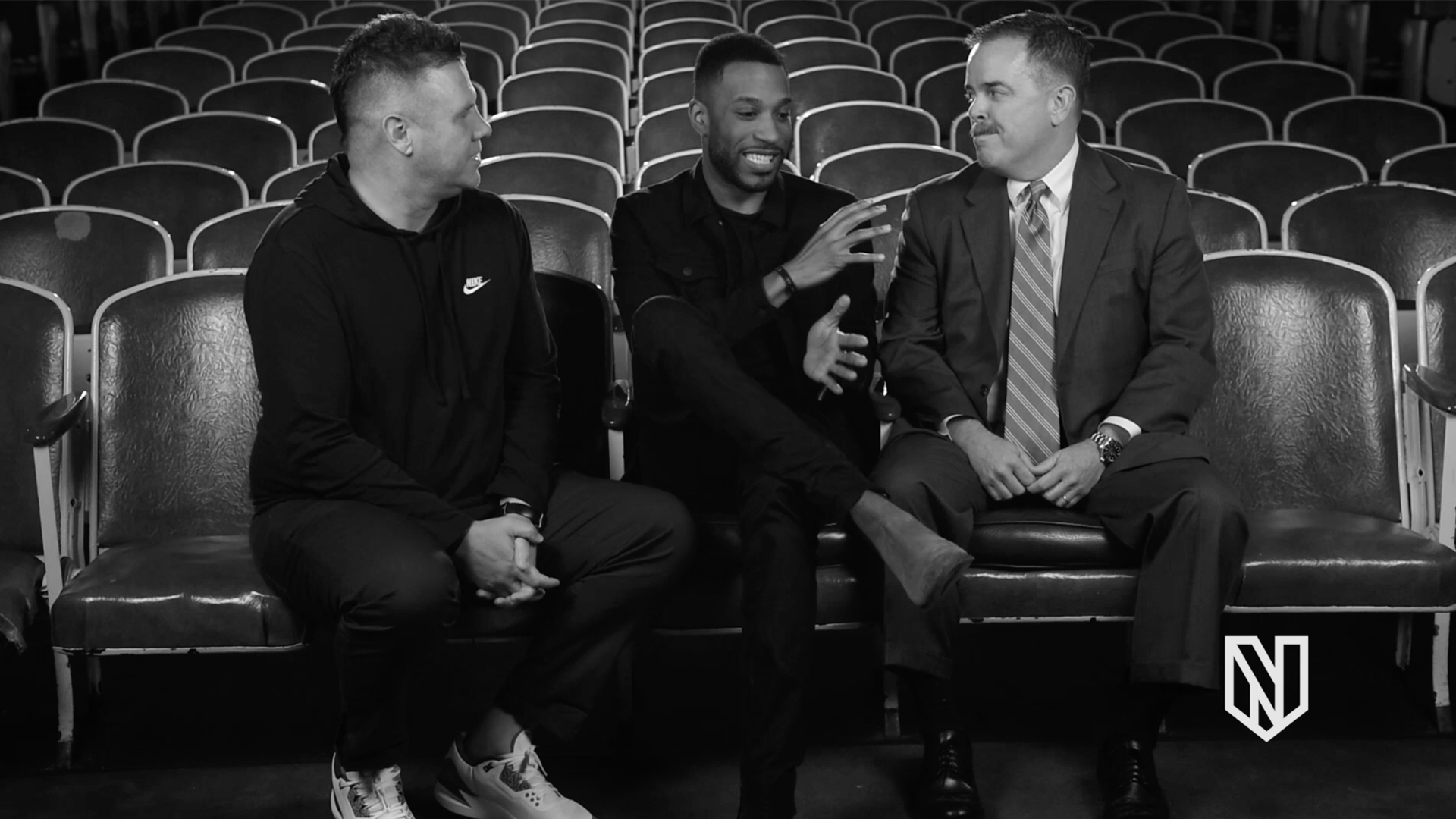Rear Admiral Doug Fears brings more than three decades of experience across a range of vital homeland security areas including counterterrorism, cybersecurity, and disaster response to the NSC. Doug serves as the President’s Homeland Security Advisor and point person on an array of vital tasks ranging from overseeing the NSC Cybersecurity Directorate to coordinating the interagency efforts during disaster response. But more importantly: Doug loves Jesus and is a father of teenagers.
Here is an idea we want you to wrestle with today: If you cannot do great things, do small things in a great way. Excellence is the gradual result of always striving to do better.
Many years ago an elderly lady was strolling through a Pittsburgh department store, obviously killing time. She passed counter after counter without anyone paying any attention to her. All of the clerks had spotted her as an idle “looker” who had no intention of buying. They made it a point of looking in another direction when she stopped at their counters.
What costly business this neglect turned out to be. Finally the lady came to a counter that was attended by a young clerk who bowed politely and asked if he might serve her.
“No” she replied, “I am just killing time, waiting for the rain to stop so I can go home”.
“Very well Madam” the young man smiled, “may I bring out a chair for you”, and he brought it without waiting for her answer. After the rain stopped, the young man took the lady by the arm, escorted her to the street and bade her good-bye. As she left she asked him for his card.
Several months later the owner of the store received a letter, asking that this young man be sent to Scotland to take an order for the furnishings of a home. The owner of the store wrote back that he was sorry, but the young man did not work the home furnishings department, however, he explained that he would be glad to send an “experienced man” to do his job.
Back came a reply that no one would do except this particular young man. The letter was signed by Andrew Carnegie and the house he wanted furnished was Skibo Castle in Scotland. The elderly lady was Mr. Carnegie’s mother.
The young man was sent to Scotland and he received an order for several hundred thousand dollars worth of household furnishings. He later became the owner of half interest in the store.
Interact with these questions…
- When is your student most tempted or most likely to become really self-centered and lose patience? Do you see any patterns? Which spiritual practice(s) could help counteract the gravitational pull toward impatience?
- What kinds of stories are most likely to evoke your student’s compassion? Why? How readily does your student practice prayer, generosity, mercy, or serving others in need?
- Who do you think God could be calling your student to serve in these ways?
And it is my prayer that your love may abound more and more, with knowledge and all discernment, so that you may approve what is excellent…
Philippians 1:9-10 ESV

We asked you to read the story of Carol Downes and William C. Durant, founder of General Motors. Many years afterward, a friend asked Carol Downes how he got his opportunity with Mr. Durant. “Oh,” he modestly replied, “I just made it my business to get in his way so he could see me. When he looked around, wanting some little service, he called on me because I was the only one in sight. In time he got into the habit of calling on me.”
Mr. Durant “got into the habit” of calling on Downes. Moreover, he found that Downes could and would assume responsibilities by going the extra mile.
So many of the next generation struggle with the idea of choosing or assuming greater responsibilities. Would the typical high school student think they are better off to be forced, by law, to join the mad rush and quit work at 5:30 pm every afternoon? But if that typical high school student had done so, she or he would have received the standard wages for the sort of work she or he performed, but nothing more. Why would that student expect to receive more? Now think of influence in terms of money and wages. A staggering thought, yes?
Your influence — much like Carol Downes — is in your own hands. Better stated, it lies in your own choices. It is wrapped up in the privilege of every high school student who desires to be a leader worth following: the right of personal initiative through and exercising the habit of choosing to go the extra mile.
How can you develop the habit of choosing to go the extra mile?

We asked you to receive your parents’ permission and watch the award-winning film The Pursuit of Happyness. Based on a true story about a man named Christopher Gardner. Gardner has invested heavily in a device known as a “bone density scanner”. He feels like he has it made selling these devices. However, they do not sell well as they are marginally better than x-ray at a much higher price. As Gardner works to make ends meet, his wife leaves him and he loses his apartment. Forced to live out in the streets with his son, Gardner continues to sell bone density scanners while concurrently taking on an unpaid internship as a stockbroker, with slim chances for advancement to a paid position. Before he can receive pay, he needs to outshine the competition through 6 months of training, and to sell his devices to stay afloat.
Let’s discuss this tension:
An admirable thing about Mr. Gardner was that he consciously decided that he would not continue the cycle of neglect, alcohol abuse, and violence to which he was subjected as a child. He calls this “going the other way” from the paths taken by his father and his stepfather. Another admirable thing about Mr. Gardner’s life story is that he did something positive in his life that no one expected him to do. How does the extra mile produce a better future in this film?

We asked you to watch the TED Talk Empower a Girl, Transform a Community. Kakenya Ntaiya turned her dream of getting an education into a movement to empower vulnerable girls and bring an end to harmful traditional practices in Kenya. Meet two students at the Kakenya Center for Excellence, a school where girls can live and study safely — and uplift their community along the way. “When you empower a girl, you transform a community,” Ntaiya says.
Let’s discuss this:
Kakenya asks this question during this inspiring message of excellence: “What would happen if the boys grew up with the same mindset as their fathers before them?” Wrestle with this idea in your own life: what will happen in our world if the next generation grows up with the same mindset as the generation before? Write down five ways you think the mindset has to change.

We asked you to watch the TED Talk Get Comfortable Being Uncomfortable. Luvvie Ajayi isn’t afraid to speak her mind or to be the one dissenting voice in a crowd, and neither should you. “Your silence serves no one,” says the writer, activist and self-proclaimed professional troublemaker. In this bright, uplifting talk, Ajayi shares three questions to ask yourself if you’re teetering on the edge of speaking up or quieting down — Did you mean it? Can you defend it? Did you say it with love? — and encourages all of us to get a little more comfortable with being uncomfortable.
Let’s discuss this:
Luvvie Ajayi said “For a line of dominoes to fall, one has to fall first, which then leaves the other choiceless to do the same. And that domino that falls, we’re hoping that, OK, the next person that sees this is inspired to be a domino.” How do you think going the extra mile inspires the next domino?

We asked you to read the article The Truth About Extracurricular Activities: Going the Extra Mile. Dr. Kat Cohen is one of the leading independent university admissions counselors in the world. Cohen is the founder and CEO of IvyWise, a comprehensive educational consulting company—with expertise in admissions counseling, tutoring and test preparation, and school research—that works with students globally in over 40 countries to help them get into the schools of their choice. IvyWise is comprised of a team of ex Deans and Directors of Admission from the most selective universities. Cohen is the best-selling author of The Truth About Getting In and Rock Hard Apps, and is a sought-after speaker and expert on university admissions.
Let’s discuss this:
Dr. Cohen asks this very intriguing question in this article about admissions: “If I took you out of your school or community tomorrow, what would be missing? What lasting impact have you made?” How would you answer that question?

We asked you to to ask for an appointment with at least three people you admire and ask them the following questions. Let’s discuss what you discovered:
1. What’s the biggest factor that has helped you be a person of excellence?
2. What are your excellence habits?
3. What mistakes have you made along the way?
4. What was the hardest decision you ever had to make?
5. What is the best advice you can give?
6. If you could start all over again, what would you do differently?
7. What’s one change I can make to help me get closer to excellence?

Disclaimer:
INFLUNSR’s mission is to fuel the next generation of leaders worth following and to help students learn how to think, not what to think. Any articles posted and questions asked are intended for that sole purpose.



